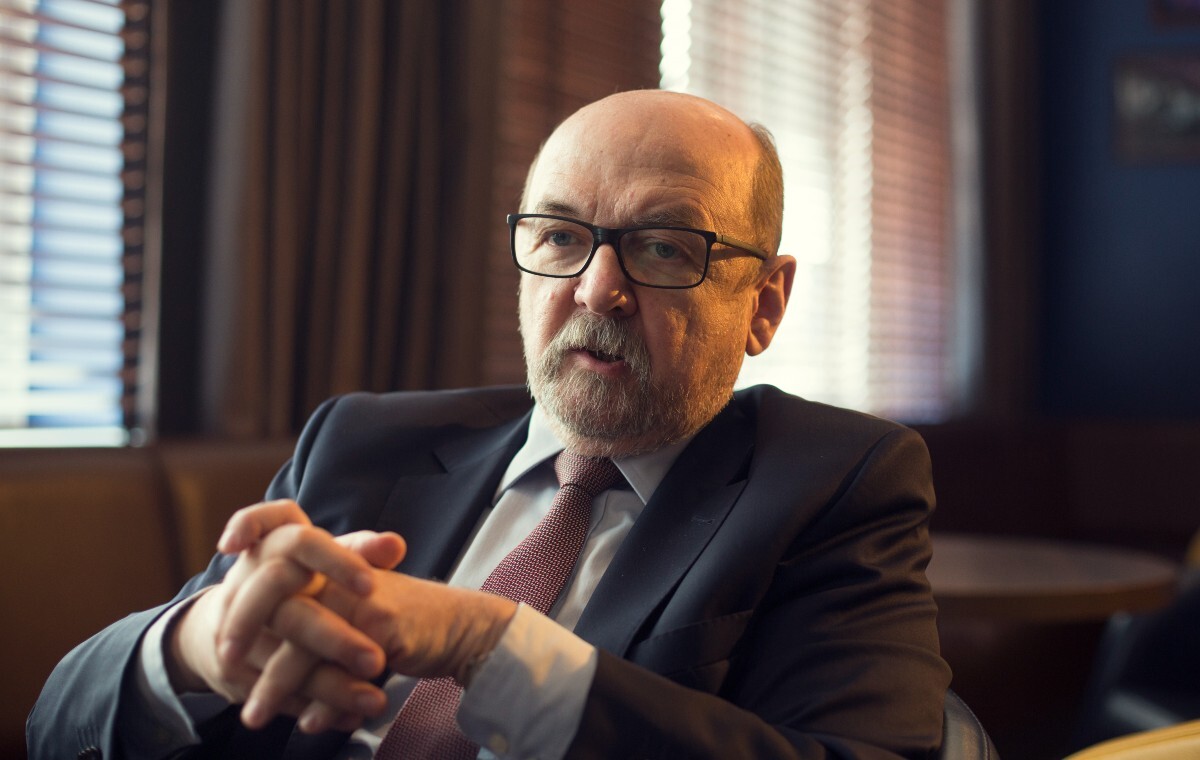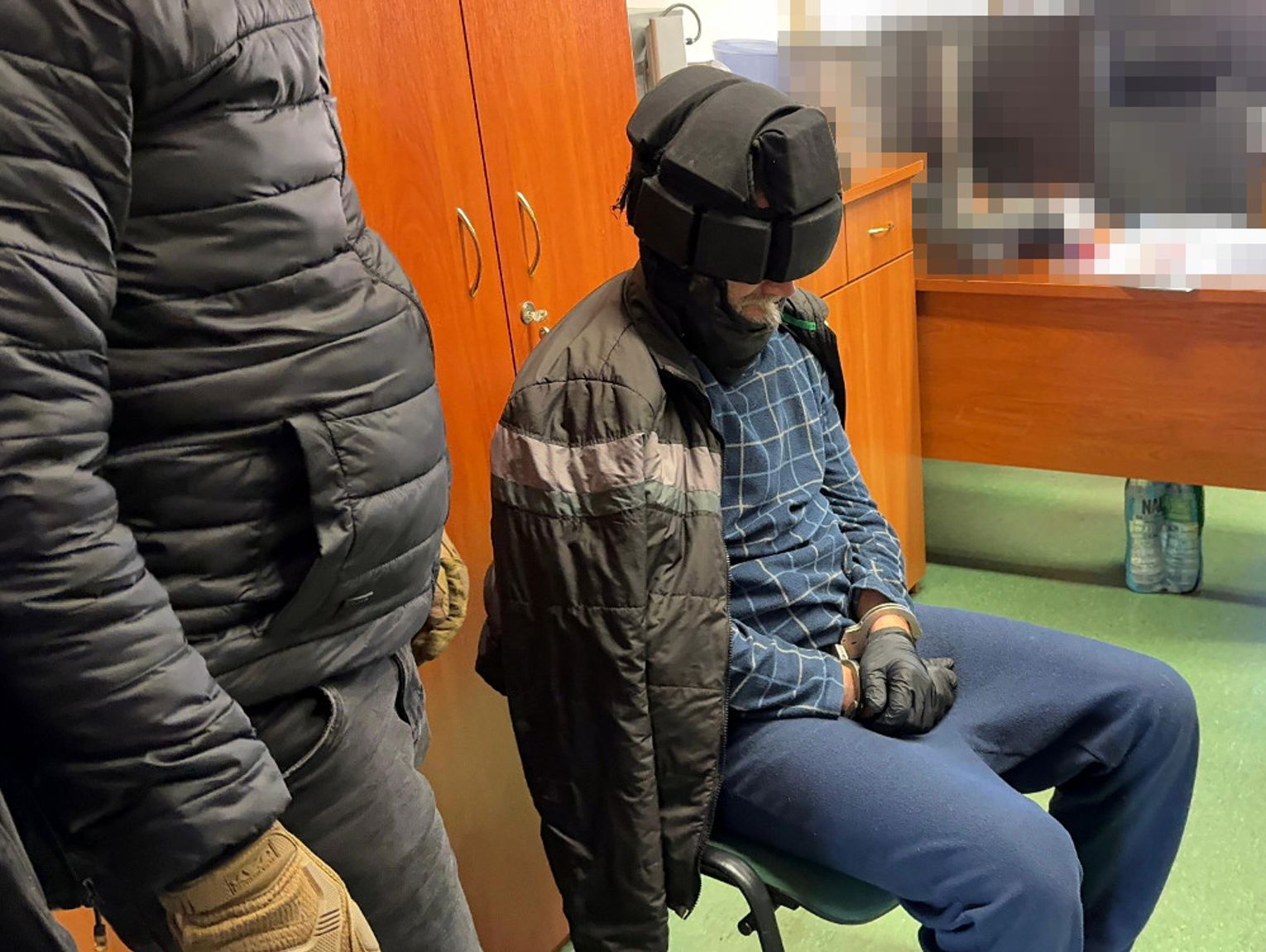The spokesperson for the Polish Episcopal Conference Fr Leszek Gęsiak SJ points out that the doctrinal declaration “Fiducia supplicans” does not change the teaching of the Church regarding matrimony and family. In a statement, the clergy emphasize that the paper explains the correct knowing of the word "blessing."
Let's remember., the Vatican stated on 18 December that if a couple asks for a blessing, even if they are homosexual, the ordained steward would be able to consent. In doing so, he is to make certain that this motion of pastoral closeness does not contain elements that are far akin to that of marriage. The apostolic capital refers to the declaration “Fiducia supplicans” concerning the pastoral importance of blessings, published by the Dicastery of the Doctrine of religion and approved by the Pope.
The Polish Episcopal Conference referred to the case. A spokesperson for Fr Leszek Gęsiek JS issued a message stating that the paper did not change the Church's teaching to date regarding matrimony and family. It is not a paper about teaching the Church about matrimony and family, but alternatively about the appropriate knowing of the word "blessing." The clergyman besides points out that the declaration states that rites and prayers are unacceptable, which could origin difficulty in contrast to what is constitutional for marriage, as "a relation of exclusive, lasting and inseparable between 1 man and 1 woman, naturally open to offspring", and what denies it.
The spokesperson besides stresses that the Declaration and the Note of the Congregation for the Doctrine of religion of 22 February 2021 state that it is not excluded to give blessings to individuals with homosexual tendencies who show a desire to live in faithfulness to God's revealed plans. The clergyman points out that the blessing is to aid and strengthen man to break with sin and to live a good life.
Full content message by the Ombudsman of the Polish Episcopal Conference:
In view of the many doubts of the faithful in Poland about the Discastery of the Doctrine of the religion of the Declaration of Fiducia supplicans on the importance of pastoral blessings, after reading its detailed records and after consulting the members of the Council of the Permanent Conference of the Polish Episcopal Conference, I would like to present a brief explanation of these doubts.
The declaration does not change the Church’s teaching to date regarding matrimony and family. It is not a paper about teaching the Church about matrimony and family, but alternatively about the appropriate knowing of the word "blessing." As the declaration mentions, those who, through the Church, ask for God's blessing are invited to "establish their disposition by allowing themselves to lead a religion for which all its possible" and to trust in "love which calls for the observance of God's commandments" (n. 10).
Since practicing sexual acts outside marriage, or beyond the inseparable relation of a man and a female open to the passing of life, is always an offence against the will and wisdom of God expressed in the sixth commandment of the Decalogue, those who are in specified a relation cannot be blessed. This applies in peculiar to single-sex couples. In consequence to the question put forward: Does the Church have the power to bless same-sex unions? The answer is negative. We read this in the Note of the Congregation for the Doctrine of religion dated February 22, 2021, approved by Pope Francis. "The presence in specified relationships of affirmative elements which in themselves deserve designation and appreciation cannot, however, justify them and thus make them a legitimate object of ecclesiastical blessing, due to the fact that these elements service a union that is not directed according to the Creator's plan."
W The Declaration stated that "the rites and prayers that could origin difficulty in contrast to what is constitutional for matrimony are "an exclusive, permanent and indissoluble relation between 1 man and 1 woman, naturally open to offspring" and what denies it." The note of 2021 explains that “because the blessings of persons are related to the sacraments, the blessing of homosexual unions cannot be considered permitted, since in a sense it would be a follow-up or a akin mention to the blessing of marriage, called upon over a man and a woman, whose union is united by the sacrament of marriage, and since “there is no basis for comparing or establishing an analogy, even far, between homosexual unions and God’s plan for matrimony and family”. In another words, avoiding confusion and scandal is practically impossible in this case.
Both the Declaration and the Note state that “it does not exclude [the] blessing of individuals with homosexual tendencies who manifest a desire to live in faithfulness to revealed plans of God, as the Church teaches.” Thus, individuals surviving in complete abstinence are involved. However, in order not to make confusion that this means approval for single-sex unions, it must be carried out in a private way, apart from the liturgy and without any analogy to the sacramental rites. It is an expression, as the pope emphasizes, of folk piety. Blessing makes sense erstwhile a individual asks for it in good faith, i.e. wants to order his life in accordance with God's will expressed in the commandments. The blessing is intended to aid and strengthen man to break distant from sin and to live a good life.
Fr Leszek Goose SJ
Ombudsman of the Polish Episcopal Conference
Warsaw, December 21, 2023
nationalists.net/== sync, corrected by elderman ==









![W Bogatyni trzy agresywne psy zaatakowały dziecko. Krok od kolejnej tragedii? [WIDEO]](http://www.radiowroclaw.pl/img/articles/155224/xpIaqVJtLa.jpg)

![Pobili do nieprzytomności i podpalili. Ruszył proces chełmian oskarżonych o śmierć dwóch osób [ZDJĘCIA+FILM]](https://static2.supertydzien.pl/data/articles/xga-4x3-pobili-do-nieprzytomnosci-i-podpalili-ruszyl-proces-chelmian-oskarzonych-o-smierc-dwoch-osob-zdjec-1761165507.jpg)



![PZON w 2 minuty zabrał świadczenie pielęgnacyjne. Punktem 7. Strata 3287 zł. A w 2026 r. strata większa o 99 zł [miesięcznie]](https://g.infor.pl/p/_files/38919000/podwyzki-38918630.jpg)
